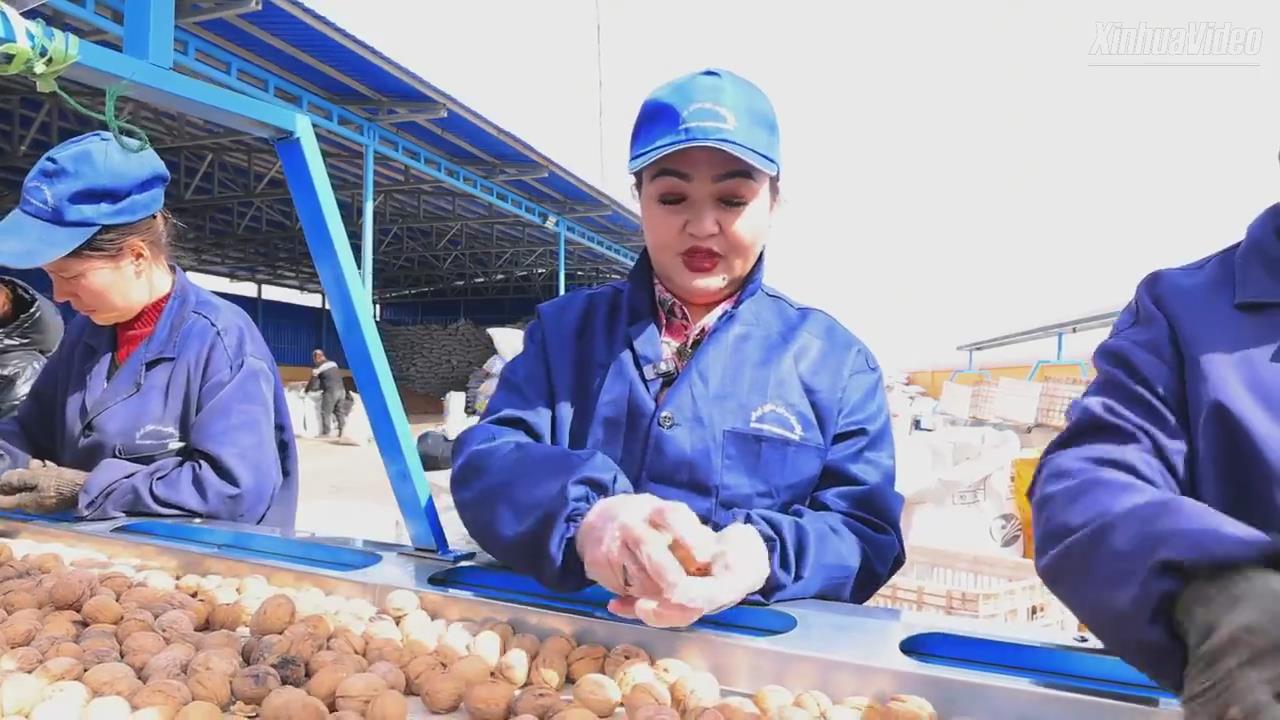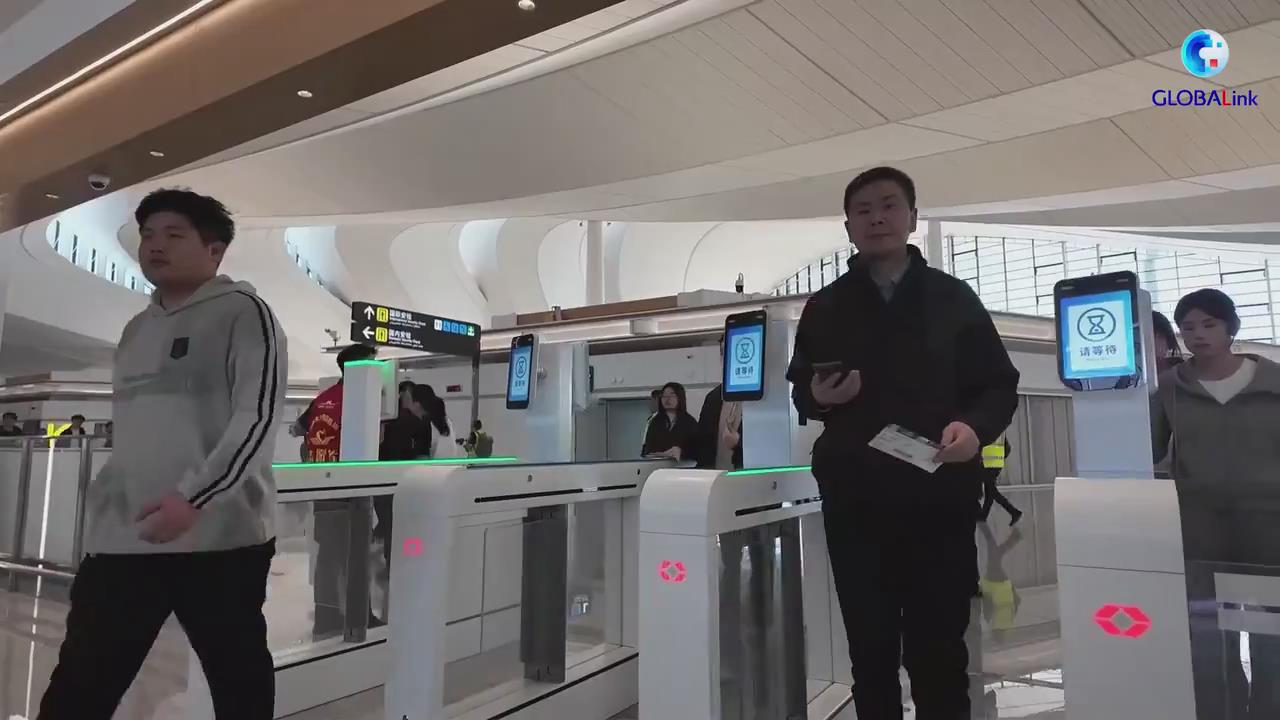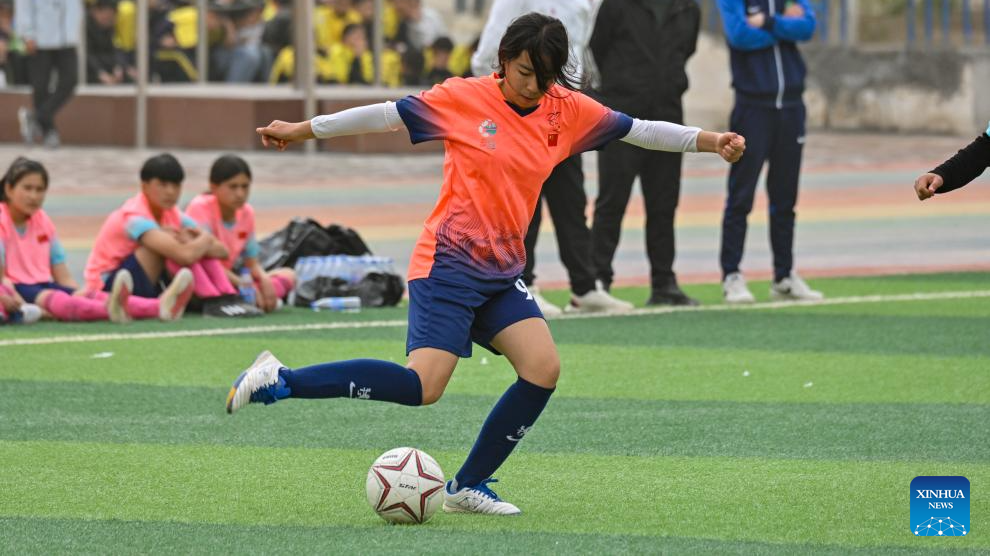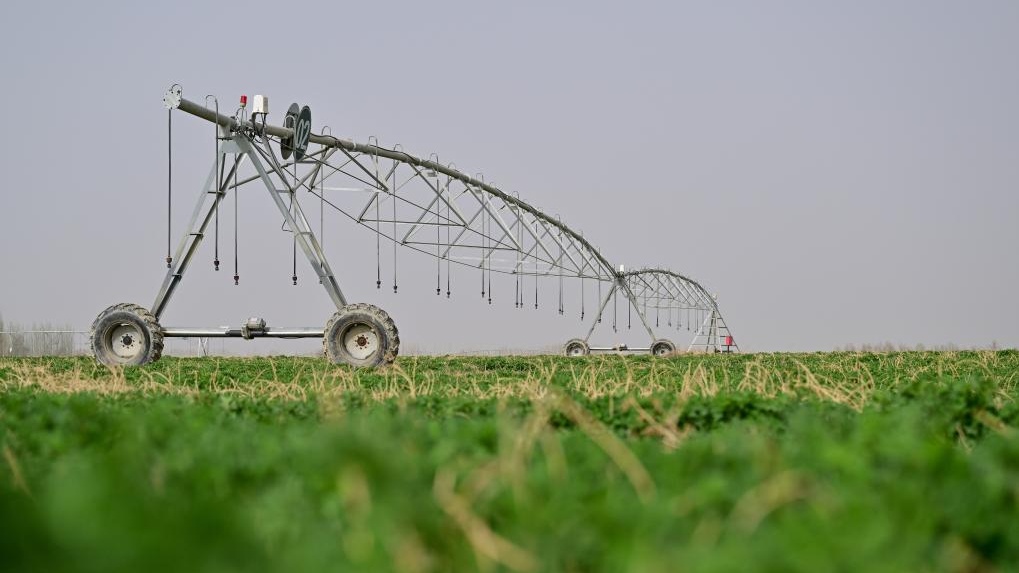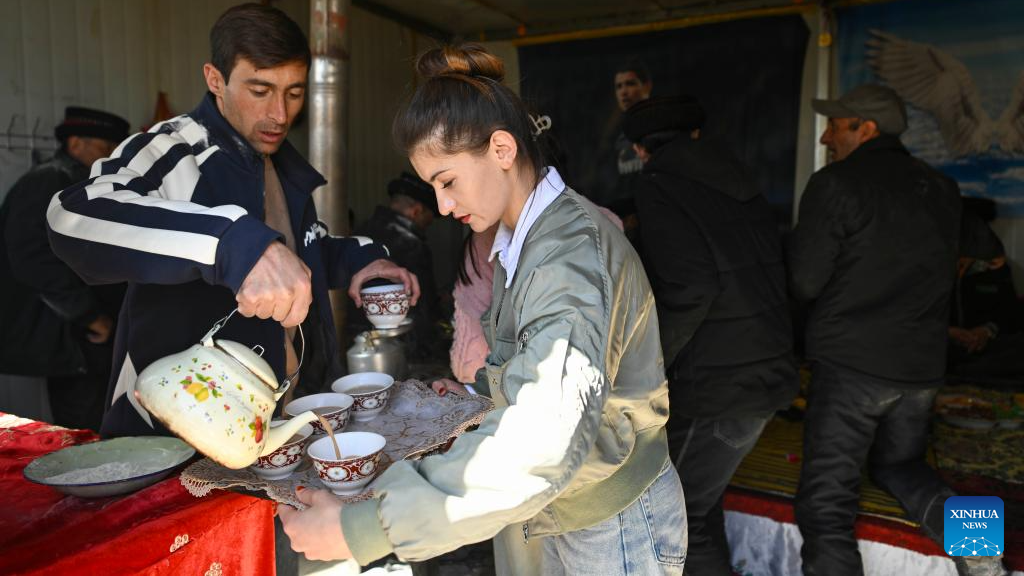.jpg)
Photo taken on July 15, 2021 shows the 50th Press Conference on Xinjiang-related Issues in Urumqi, capital of northwest China’s Xinjiang Uygur Autonomous Region. Photo by Xinjiang Daily/ Zou Yi
On July 15th, 2021, the Xinjiang Uygur Autonomous Region held a special press conference on Xinjiang related issues in Xinjiang. Five representatives of ethnic minorities from Ili Kazakh Autonomous Prefecture, Karamay City, Bayingolin Mongolian Autonomous Prefecture, Kashgar Prefecture and Hotan Prefecture were invited to talk about their work under the strategy of "prospering Xinjiang through tourism". Through the story of individuals who are striving to live a happy life, we can effectively fight back the fallacy of overseas speculation about the so-called "forced labor" in Xinjiang.
Host: Good morning, dear fellow media and journalists. Welcome to Xinjiang Uygur Autonomous Region press conference on Xinjiang related issues. I’m the host of this press conference and my name is Zhu Qiong.
For a period of time, out of ideological prejudice and the evil intention of stigmatizing China, some international anti-China forces have ignored Xinjiang's great efforts to protect human rights and applied double standards of human rights. Having ignored the facts, called white black, they wantonly hype the so-called "forced labor" problem in Xinjiang, discrediting the employment security work in Xinjiang. and misleading the opinion of international community. The fact is that China has always adhered to the people-centered developmental philosophy, attaching great importance to the work of employment security, and vigorously implementing the strategy of giving priority to employment and favorable employment policies. We have fully respected the will of workers, protected citizens' labor rights in accordance with the law, actively practiced international labor and human rights standards, thus to strive to enable every worker to create a happy life and realize their own development through hard work.
In recent years, Xinjiang has vigorously implemented the strategy of "prospering Xinjiang through tourism" and identified tourism as one of the "top ten industries" in Xinjiang. Recently, Regulations of Xinjiang Uygur Autonomous Region on Promotion of Tourism have been formally implemented, and the high-quality development of tourism in Xinjiang has taken a new step. The advantages and potential of tourism in promoting economic development, stimulating consumption and promoting employment and entrepreneurship are further highlighted.
Today, we are very happy to have five tourism industry practitioners with us to talk about how they manage to live a happy life through hard working, including choosing career on their own and of their own free will. They are Buzorihan Matrozi, a commentator of Hotan Jiyali Atlas silk Co., Ltd.; Mavlan Turak, the owner of Kashgar ancient city cultural and creative shop; Tangnur Nurtan, the staff member of XingKong camping base in Zhaosu County of Ili Kazakh Autonomous Prefecture; Amarjan Mamut, the manager of Mujiale in Gongnaisi Town of Hejing County of Bayingolin Mongolian Autonomous Prefecture; Buajar Ablimit, a staff of Wuerhe Film Studio scenic spot in Karamay.
The people of all ethnic groups in Xinjiang are totally free in employment. Xinjiang adheres to the employment policy of combining self employment, market regulation, government assistance and entrepreneurship. What the government does is to create a favorable employment environment, create conditions for the people of all ethnic groups to find satisfactory jobs and obtain stable income, and guarantee the right to employment to the maximum extent.
Recently, some overseas media fabricated lies such as "in Xinjiang, ethnic minority workers' customs and tradition were suppressed at work". It's all slander and rumor. The truth is that the Chinese government effectively guarantees the equal employment rights of workers. In Xinjiang, workers of all ethnic groups shall not be discriminated against because of nationality, gender, region and religious belief. In 2008, Atlas silk weaving and dyeing technology was selected into the list of national intangible cultural heritage, which has been well inherited and developed, which was known as the "living fossil on the Silk Road". Jiya Township, Hotan City, Xinjiang is known as the hometown of Atlas silk. It is a traditional custom for local people to wear Atlas silk on important festivals and occasions. Today, the local people have developed the silk weaving technology inherited from Uygur people for generations into an important way to increase income and become rich. Now, I'd like to invite Buzorihan Matrozi, a commentator of Hotan Jiyali Atlas silk Co., Ltd. to tell her own story.
.jpg)
Photo taken on July 15, 2021 shows Buzorihan Matrozi speaks at the 50th Press Conference on Xinjiang-related Issues in Urumqi, capital of northwest China’s Xinjiang Uygur Autonomous Region. Photo by Xinjiang Daily/ Zou Yi
Buzorihan Matrozi: My name is Buzorihan Matrozi , and I’m a Uygur, from the hometown of Atlas silk, Jiya Township in Hotan City. Now, I’m working as a commentator for Hotan Jiyali Atlas silk Co., Ltd.
In my hometown Jiya Township, there are many families who have been making the Atlas silk textile for generations. They use the ancient warp dyeing method to weave the Atlas silk with bright patterns and colors. When I was a child, every traditional festival, adults would prepare new clothes for us, and the clothes made by Atlas are the most popular among girls, because they are soft and colorful, which contains the Uygur people's love and pursuit for a better life. Therefore, in my childhood memory, the clothes made of Atlas silk are the most beautiful clothes, and the gorgeous colors also accompany me to grow up.
When I was in junior high school, I saw my uncles and aunts spinning and weaving, and I saw white silk spinning into weaving thread in their hands bit by bit, which made me very curious. So every afternoon after school, I would run to the Atlas loom to watch my uncles and aunts spinning and weaving. Later, I graduated from school. Because I had good language skills and was familiar with the technology of Atlas silk, I applied for a job in the company and became a commentator. I introduced the technology of Atlas silk to the tourists who came to visit the company.
Now, I have been working in the company for 14 years. It's actually a very happy thing to be able to engage in the work that you like. Over the years, I have never lost my preference for Atlas silk. However, the traditional technique of Atlas silk also faced challenges in the development over the years. In order to make this "living fossil on the Silk Road" glow with brilliance, we constantly improve the process, innovate the design, develop the derivatives of Atlas silk, and open up the tourism market through network publicity, so that more people can understand our products.
.jpg)
Photo taken on July 15, 2021 shows Buzorihan Matrozi shows the souvenirs made of Atlas silk to media reporters at the 50th Press Conference on Xinjiang-related Issues in Urumqi, capital of northwest China’s Xinjiang Uygur Autonomous Region. Photo by Xinjiang Daily/ Zou Yi
I remember a group of foreign tourists especially like our products. I'm really happy to see that our innovative Atlas products can be adored by more and more people.
Our company also invite experienced Master to help us carry out the research and development of Atlas products. Master Mamat is one of them. He is a master with more than 30 years of textile experience. He used to be engaged in making Atlas in a family workshop, with small scale, limited market and low income. In 2016, Master Mamat and his wife joined our company together. Now their monthly income is about 7,000 yuan. Here, they not only have a stable job and income, but also can better pass on the Atlas silk textile technique to our younger generation. Today, I'll bring you a video of the production process of Atlas. Please watch it.
We conscientiously inherit and develop the silk industry in our hometown, and improve our life with the tourism bonus brought by the silk. Why do some people with ulterior motives say that our ethnic minorities in Xinjiang have suffered from "forced labor" and "cultural extinction"? Not long ago, there was a boycott against Xinjiang cotton. Their vicious purpose was so obvious that they wanted to disturb our happy life. I want to say, stop daydreaming,. We are content with our happy life!
Host: Thanks for the introduction from Buzorihan Matrozi. In recent years, Xinjiang has increased investment to improve the hardware and software facilities of tourist attractions, which not only creates a comfortable and beautiful tourism environment for tourists, but also provides good employment and entrepreneurship conditions for workers of all ethnic groups. Up to now, there are 16 5-A scenic spots in the region. Since 2008, the state and the autonomous region have attached great importance to the comprehensive protection and treatment project of the old urban area of Kashgar, with an investment of 7.049 billion yuan. At the same time of completing the transformation of the old city, we also implemented the creation of 5-A tourist attractions in the ancient city of Kashgar, creating a better entrepreneurial and employment environment for people of all ethnic groups. Nowadays, Kashgar ancient city has become one of the many symbols of Xinjiang’s beauty. There is a shop in Kashgar ancient city scenic area, which is very popular with tourists because of its ethnic costumes and unique tourist souvenirs. It has won its fame through publicity on the Web. Now, let's invite Mavlan Turak, the owner of cultural and creative shop in Kashgar, to tell his entrepreneurial story.
Mavlan Turak: Hello everyone! My name is Mavlan Turak, and I’m 28 years old, a Uygur from Kashgar. It is said that "if you have not gone to Kashgar, then you have never been to Xinjiang". The most representative scenic spot in Kashgar is the ancient city of Kashgar, which is a 5-A level historical and cultural site in Xinjiang. It is in such an ancient city that I am running a small shop called "Obsessed with Cultural Creation". There are many traditional ethnic costumes and accessories in the shop, as well as many distinctive cultural and creative tourist souvenirs. Every tourist entering the store can experience a cultural journey "through time and space". Today, I'd like to tell you my entrepreneurial story.
My father was a businessman, and my mother was a famous tailor in Kashgar. When I was a child, I enjoy seeing my mother sitting in front of the sewing machine, turning simple cloth into beautiful clothes. This should be my first impression of "design" in my memory. When I was in school, my homework about design and painting was the most unique and creative. The more appreciation I got, the more I loved design. Since then, I have a dream of becoming a designer. However, my father had a serious illness, which had a great impact on my application for university and my choice of major. Finally, I became a medical student in Jiangxi University of Traditional Chinese Medicine.
During my study in Nanchang, Jiangxi Province, I didn't give up my hobby. I still used my spare time to collect relevant information and learn design. At that time, I thought of enriching Xinjiang's tourist souvenirs, and I wanted to give full play to my strength to make some unique and interesting tourist souvenirs that were associated with distinctive "Xinjiang characteristics". After many attempts, I finally designed a tourism product combining the traditional style of ethnic minorities with the elements in current trend, which was popular with students. What made me a step closer to my dream was that in my senior year, I got the opportunity to take part in shooting a short film about Xinjiang ethnic costumes. I checked a lot of books and materials, referred to a lot of photos, paintings and movies, and consulted experienced old craftsmen. With the help of my mother, I went to the market to buy old fabrics, restored and designed more than 30 sets of retro clothes and dozens of jewelry. This design completely indulge me in the combination of folk culture and modern design.
I have been paying close attention to the tourism development of our hometown, especially the ancient city of Kashgar, which has a long history. The country has spent a lot of manpower and material resources to build the ancient city into a famous scenic spot full of tourists. Now there are more than 20 flights to Kashgar every day, and there are so many tourists from various countries and all over the country, which is to my delight! In 2018, when I came back to my hometown and saw the buildings with Uygur characteristics in the ancient city of Kashgar and the booming tourism industry in my hometown, I decided to choose to run this cultural and creative shop in the ancient city of Kashgar. Today, I brought you a video to show you my life.
Now there are more than 200 handicrafts and handmade traditional Uygur costumes in my shop, which can provide tourists with retro photo shooting. I also designed mobile phone case, pencil case, T-shirt and other tourist souvenirs with Xinjiang elements. From 2019, the annual cash flow of my shop will reach more than 500,000 yuan. Today, I've also brought some cultural and creative products. Now I'd like to show them to you.
.jpg)
Photo taken on July 15, 2021 shows Mavlan Turak shows the souvenirs she designed and made to media reporters at the 50th Press Conference on Xinjiang-related Issues in Urumqi, capital of northwest China’s Xinjiang Uygur Autonomous Region. Photo by Xinjiang Daily/ Zou Yi
In the future, I hope to explore more cultural and creative products with Xinjiang characteristics through my design. I also hope to open cultural and creative stores abroad, so that my design works can be in line with international standards, and our foreign friends can see Xinjiang's fashion and feel the charm of Chinese culture.
Recently, I saw on the Internet that the United States, the United Kingdom and a few other countries wantonly discredit China and attack Xinjiang under the guise of human rights. This is really the most vicious lie. Taking me as an example, I pursue my dream with my own hobby. I regard my dream as my career and have made small achievements. I have freedom. How can I be forced? Those countries with ulterior motives should stop spreading the rumor. Finally, I sincerely invite you to visit my shop in Kashgar ancient city, have a look, try for a wear and have a try, to take a look at our beautiful Uygur traditional costumes, and feel the rich ethnic cultural atmosphere of the ancient city. Welcome to my shop.
Host: Thanks for the introduction from Mavlan Turak. Since the 18th National Congress of the Communist Party of China, Xinjiang has vigorously implemented the project of benefiting the people via employment. Nowadays, the goal of "every family has access to positions, everyone has his or her job, and every month there is stable income" has been basically achieved. People's "wallet" is getting bigger, with increasingly prosperous life and happy mood. Tangnur Nurtan of Zhaosu County in Ili Kazakh Autonomous Prefecture, Xinjiang, found a job he liked, which could increase his income at the "Dream and Starry Sky Camping Base" at his home. Now, let's give the floor to Tangnur Nurtan to tell his story.
.jpg)
Photo taken on July 15, 2021 shows Tangnur Nurtan introduces local tourism resources to media reporters at the 50th Press Conference on Xinjiang-related Issues in Urumqi, capital of northwest China’s Xinjiang Uygur Autonomous Region. Photo by Xinjiang Daily/ Zou Yi
Tangnur Nurtan: Hello everyone! My name is Tangnur Nurtan. I'm from Zhaosu County, Ili Prefecture. I grew up on the grassland. My companions are cattle and sheep. I have special feelings for the grassland. From June to August, Zhaosu is called "the holy land of explorers" and "the paradise of photographers" by tourists. Now is the peak season for tourist . More and more tourists swarm into Zhaosu to experience the grassland scenery. Today I will tell you my story.
In 2020, a place called "Dream and Starry Sky Camping Base" appeared on the grassland where I often graze. The first time I saw such a camping base, I felt the idea was very innovative, so I thought, if only I could work in this place! Unexpectedly, my wish soon came true. The owner of the camp base recruited more than ten local young people to run it together. In this way, I am no longer a herdsman and I became an employee of the campsite .
Usually, on the campsite, while I cook milk tea for tourists, I’ll also introduce our grassland to them and talk about our local ethnic characteristics, so that more foreign tourists can get to know Zhaosu and fall in love with it.
Our camping base has now become a hot travel spot, and visitors need to book at least one week in advance. Tourists leave Yining City at noon and arrive at the camping base just in time to see the sunset, and at night, lying in their tents, they can see the starry sky. In the evening, we also play the dombra and visitors are invited to join our traditional ethnic dancing. Tourists from all over the world can experience the colorful life in grasslands.
Recently, I heard that Zhaosu's airport will be put into use soon. So, we have to buck up and seize this opportunity to welcome tourists around the country and the globe.
On our base, there is a total of 20 tents with sky-view, all of which are white and round, resembling a big mushroom, so we like to call them "mushroom tent". Our base can accommodate 60 to 70 people every day. Tourists who come to camp here say they enjoy the scenery here. On the prairie, you can see the stars and the Milky Way when you look up. I have prepared a video here, so please take a look.
In order to get more visitors to our camping base, we have made a lot of efforts to protect the ecological environment. We use solar power to generate electricity; we brace the tents on a wooden frame so as not to destroy the meadow; we sow the grass seeds in the ruts left by cars transporting necessities so that the grass is always green. It is precisely because of our protection efforts that our camping base can be so popular.
After securing a stable job myself, I also introduced a dozen neighboring villagers to work in the camping base. The workload varies by seasons. During the slack season of winter, I would engage in farming in my home. While in the peak season, I come to work here and get a monthly salary of more than 4,000 yuan, so I can earn more than 20,000 yuan a year. I am glad that I can balance work with my family commitments.
Now, I learn from the Internet that some American and Western countries falsely accuse us of hiring "forced labor" in Xinjiang, I think it is extremely ridiculous. I really feel particularly absurd. I work for myself and earn money for myself. How can I be forced to do so?
Host: Thank you, Tangnur Nurtan, for your presentation. A few days ago, some foreign media falsely claimed that "the employment policy in Xinjiang instead of improving the quality of life of the Uygur people, it has been counterproductive", which is a complete disinformation. The fact is that a host of employment policies implemented in Xinjiang have led to a significant increase in family income and a marked improvement in living standards for people of all ethnic groups, especially those in the poor areas of southern Xinjiang. In Gongnais Town, Hejing County, Bayingolin Mongolian Autonomous Prefecture , local herdsman Amarjan Mamut opens an agritainment courtyard with the help of the local village committee and made a prosperous life thereafter. Next, I would like to ask Amarjan Mamut to tell his story.
.jpg)
Photo taken on July 15, 2021 shows Amarjan Mamut speaks at the 50th Press Conference on Xinjiang-related Issues in Urumqi, capital of northwest China’s Xinjiang Uygur Autonomous Region. Photo by Xinjiang Daily/ Zou Yi
Amarjan Mamut: Hello everyone! My name is Amarjan Mamut, I am of Uyghur and I come from Gongnais Town, Hejing County in beautiful Bayingolin Mongolian Autonomous Prefecture. Today, I am glad to be here and share with you my story of getting rich by running an agritainment business.
I was quite unsure when I started my business at first. I thought how could a herdsman run a business. But the village officials actively encouraged and helped me. They provided free technical training on running agritainment. Experts were invited to coach me on-site. They also helped me with publicity. All of this stimulates my motivation and confidence in running my business.
My house is close to the highway. Taking advantage of the convenient traffics, I transformed the spare rooms into an agirtainment yard called "Old Pine Tree" with the help of the village committee. If you walk into my small courtyard in summer, the first thing greets you will be the faint fragrance roses. The yard is clean and tidy. There are many delicious things such as stewed mutton, big plate chicken, spicy chicken and special noodles. As early as the first year of running my agritainment yard, I have tasted the benefits tourism brings to me and my folks.
.jpg)
Photo taken on July 15, 2021 shows Amarjan Mamut shows specialty foods to media reporters at the 50th Press Conference on Xinjiang-related Issues in Urumqi, capital of northwest China’s Xinjiang Uygur Autonomous Region. Photo by Xinjiang Daily/ Zou Yi
At the beginning, the income from the operation of the agritainment yard was 80,000 a year. I invested the money on livestock, and then the meat and dairy products produced in my restaurant. I produced and sold by myself. This benign cycle generates more money. Now my annual income can reach more than 300,000 yuan. I have a video to show you my courtyard.
Now as soon as the prefecture holds an event or makes some tourism incentives, more guests will come to my herding house and more income will be generated. Now the days are getting better and better, my family bought a house of more than 100 square meters in the county. We also bought a pickup truck. As long as time permitted, I will bring my family on vacation, and my life is getting more and more prosperous.
Now, the anti-China forces in the U.S. and the West are pointing fingers against us, stigmatizing us. I feel very angry about this. As a Uygur, I would like to tell them that our people of all ethnic groups in Xinjiang are now living a very happy life, and there is no such thing as "forced labor" and "human rights violations" as they have fabricated. We are now getting better day by day, which is the biggest human right in my opinion. Finally, welcome friends from all over the world to my agritainment house, I will definitely make you the most authentic and delicious stewed lamb.
Host: We appreciate the hospitable Amarjan Mamut. As you have heard just now, Amarjan Mamut used Mandarin, Uygur, Kazakh and Mongolian in his final remarks to welcome visitors from all over the world to his agritainment. I hope that the business of Amarjan Mamut will become better and better, and his life will be more prosperous. In recent years, focusing on the development strategy of achieve development via the tourism , Xinjiang has actively promoted the transformation of the pattern of employment growth, increased employment in the secondary and tertiary industries vigorously, and formulated an action plan to boost employment in the tourism industry. With the in-depth implementation of a series of policies and measures, many people have found suitable jobs in the field of tourism through independent choice, and their life goals have also been realized. In Karamay, Xinjiang, there is a place called "Western Hengdian", which is Wuerhe Film Studio. There are not only unique natural and cultural landscapes of Xinjiang, but also many people's dreams. Now Buajar Ablimit would like to tell her story with Wuerhe.
.jpg)
Photo taken on July 15, 2021 shows Buajar Ablimit speaks at the 50th Press Conference on Xinjiang-related Issues in Urumqi, capital of northwest China’s Xinjiang Uygur Autonomous Region. Photo by Xinjiang Daily/ Zou Yi
Buajar Ablimit: Hello, everyone. My name is Buajar Ablimit, I’m a Uygur living in Tuowankuyila Village of Huangdi Town of Shache County in Kashgar Prefecture. Last September, the village committee recommended me to work in Karamay Wuerhe Film Studio. I came to here nearly a year, I like working here very much.
Maybe some people haven't heard of Wuerhe Film Studio. But I think you've all seen the TV series Ode to the Great Qin Dynasty. Scenes such as the Gobi Desert and the Populus diversifolia forest appeared on the TV series were shot in our film studio. Our film studio is called "Western Hengdian". Many TV dramas come to our film studio to capture the unique natural scenery of Xinjiang.
When I first came to the film studio, I worked in the catering department. The manager of the restaurant is Wu Rekun, an elder sister from Ili Prefecture. She is very enthusiastic and cares about each of us a lot in work and life. I would turn to her when I had any difficulties or problems in life and she was willing to help me to solve them enthusiastically. She is like my family members. Because of her, I also feel the warmth of being at home, we all referred her as "Wu Rekun mother". Later I was transferred to the dressing area, but also as the head of the shift. From the ordinary staff of the catering department to the shift leader of the dressing area, I am recognized by everyone and also the result of my unremitting efforts.
When it’s not busy in winter, Human Resources and Social Security Bureau in Wuerhe District will invite some professional teachers to train us on reception etiquette and other aspects, these make our competence and business skills further improved. Last year, I also participated in the training related to Labor Contract Law to learned about legal knowledge, and knew how to use the law to protect my legitimate rights and interests.
I am very satisfied with my current job. The scenic spot provides me with free accommodation, regular holidays and medical check-ups. My salary is around 3,600 to 4,000 yuan per month, and I have social security. The social security card is really beneficial, once when I was practicing dancing, I got my arm sprained, and I went to The Third People's Hospital of Karamay to see a doctor. The doctor prescribed Yunnan Baiyao spray and plaster, I paid with the social security card directly. Since the room and board are free, I can save almost all my salary every month. My sister is in third grade, and she loves the little antique dress I bought her. Recently, the family also bought new furniture, life is getting better and better.
In Wuerhe Film Studio, the most satisfying thing for me is to fulfill my "actor dream" here. I have loved singing, dancing and acting since I was a child. I have learned dance before and never had the chance to show it on the stage. There is a campfire party every night in film studio. Every holiday, there will also be various performances such as the King of Qin inspecting the city, ancient etiquette, flower arrangement performance, etc. I particularly like these ancient dances. Sometimes, I can go to the stage and dance with them. I mainly dance some Xinjiang folk dances. Tourists like my dances very much and speak highly of me. Sometimes we dance with tourists, and after dance, people will come and take pictures with me. I really enjoy the time. I'm going to show you a video of where I work.

Photo taken on July 15, 2021 shows Buajar Ablimit shows the dance at the 50th Press Conference on Xinjiang-related Issues in Urumqi, capital of northwest China’s Xinjiang Uygur Autonomous Region. Photo by Xinjiang Daily/ Zou Yi
Working in the film studio, I also learned the ancient style dance and the ancient etiquette. I especially like the ancient costume, which makes me feel the charm of Chinese culture. Wuerhe Film Studio is a scenic spot full of cultural atmosphere. Working here can give me more opportunities to understand and learn about traditional Chinese culture. What makes me more happy is that in the past two years, many films and TV series such as Camel Caravan have been shot in Wuerhe. With the increasing popularity of Wuerhe and our scenic spot, many films and TV series have signed contracts with our film studio. Later, I will be able to participate in the shooting with my colleagues as an extra on the screen, and truly "realize my dream".
Now, US and some Western countries say that we Uygurs are "forced labor". I was very angry and felt very ridiculous! Now I am engaged in the job I like and doing what I like. With my own efforts, I have been promoted from a waiter to a shift leader. I have guarantee to medical care when I’m sick, and the income can enable my family to live a better life. Most importantly, I have the freedom to pursue my dream of being an actor. So I’d like to ask you, how are we being forced? Do we need to be forced to make life better by our own hands? Please shut up your irresponsible mouth, we have the best say in our lives.

Photo taken on July 15, 2021 shows the 50th Press Conference on Xinjiang-related Issues in Urumqi, capital of northwest China’s Xinjiang Uygur Autonomous Region. Photo by Xinjiang Daily/ Zou Yi
Host: Thank you Buajar Ablimit for telling us. Next, I would like to take your questions from the press. First of all, I'd like to take questions from the reporter of the People's Daily.
People's Daily: Thank you very much. I'm a reporter from People's Daily. I'd like to ask Mavlan Turak, after the ancient city of Kashgar was transformed into a 5-A scenic spot, many local residents became business owners of the scenic spot. Could you tell us what changes this has brought to the lives of the local people?
Host: This question will be answered by Mavlan Turak.
Mavlan Turak: After the ancient city of Kashgar was transformed into a 5-A scenic spot, the life of the people in the scenic spot has changed a lot. One is to increase their income, so that they become business households. All of them gave full play to their skills. Some opened a Nang (a special kind of crusty pancake in Xinjiang) shop, some opened a baked stuffed bun shop, some opened a teahouse, and there were many family workshops, some selling flower hats, some selling musical instruments. We all enjoy our lives because we are in familiar places and close contact with tourists, and we earn money at our own doorstep. With more income, our living standards have improved. Second, after the reconstruction of the old city, water, natural gas and sewers have been connected. Various living facilities in people's homes are much better than before, and life is especially convenient. Everyone is very happy.
Host: Thank you Mavlan Turak for your answer. Now let’s welcome the journalist from Tianshannet to raise the question.
Tianshannet: Thank you very much. I'm a reporter from Tianshannet. I'd like to ask Amarjan Mamut, apart from the improvement of living standard, what else have you and your family gained after running recreational facilities on pasture?
Amarjan Mamut: Just as what I said just now, after managing animal husbandry tourism, there is money in my pocket, so I bought big house to live and bought the car to drive, the living conditions have become better, and our life is getting better and better, later I will expand animal husbandry tourism. In addition to these, managing animal husbandry tourism makes me feel hopeful about my life, also, I have made friends from many places, and the more I know, the broader my horizon is. Even though I’m very busy, I feel very happy and energetic.
Host: Thanks Amarjan Mamut for answering. Thanks again to the five speakers for their telling. Facts speak louder than words. As we can see, the people of all ethnic groups are fully entitled to choose jobs freely, there is no such thing as “forced labor”. Here, we urge those countries to abandon political bias, take off tinted spectacles, stop making groundless accusations against Xinjiang and interfere in China’s internal affairs. Labor changes life, but also creates happiness. Xinjiang adheres to the development concept of “people-focused” and the idea of “employment is fundamental to people’s livelihood”, continues to implement the employment priority strategy and adopt a more active employment policy, and vigorously promotes labor employment, make unremitting efforts to achieve more adequate and higher-quality employment and continuously meet the growing needs of people of all ethnic groups for a better life. This is the end of today’s conference, thank you all!

.jpg)
.jpg)
.jpg)
.jpg)
.jpg)
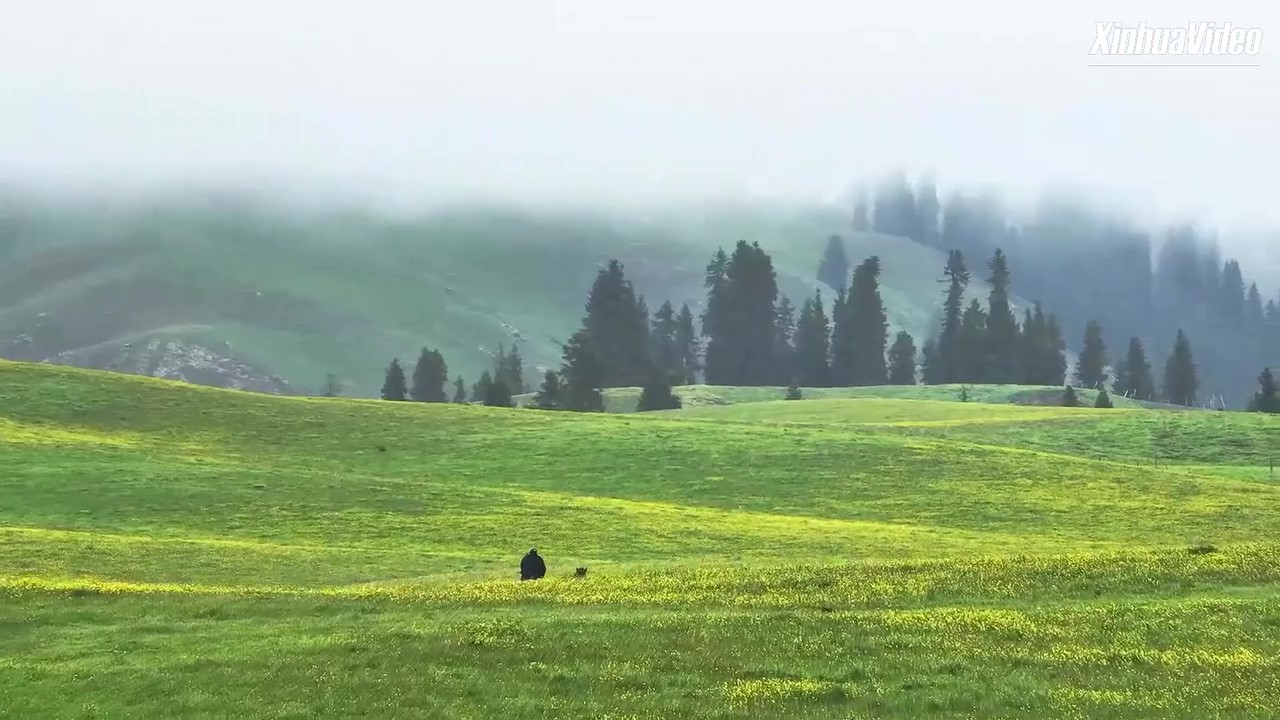
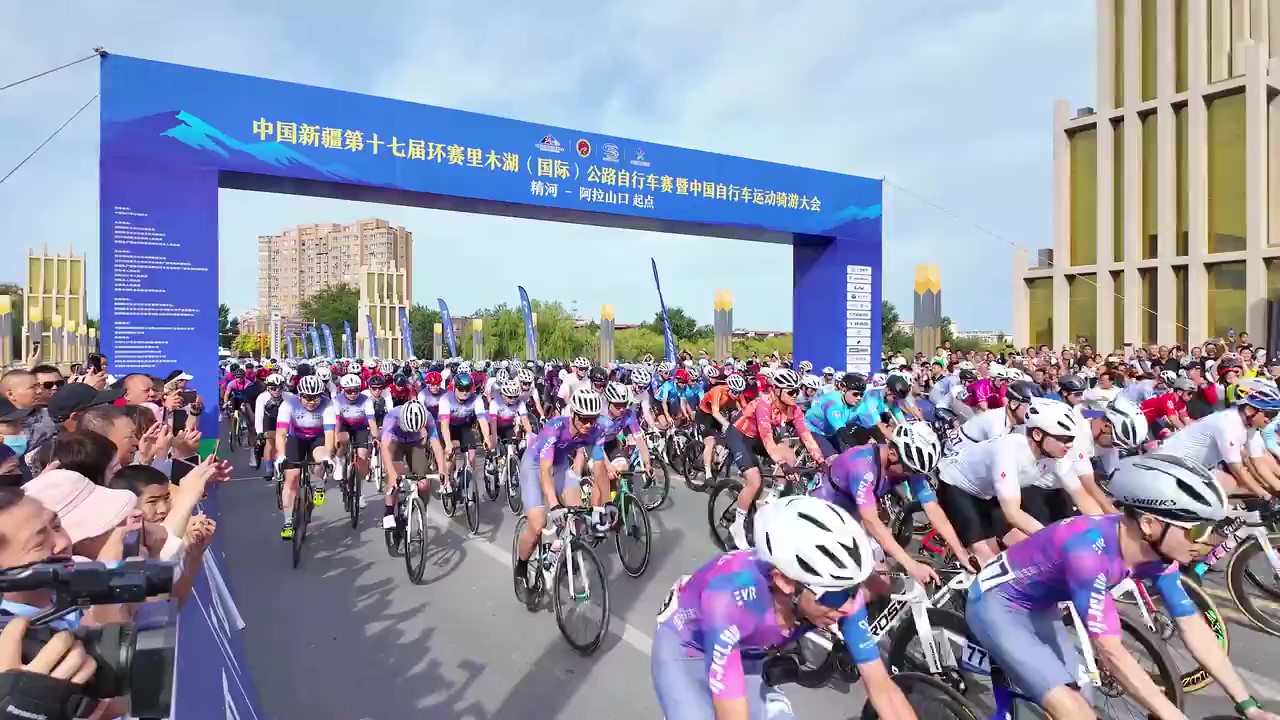

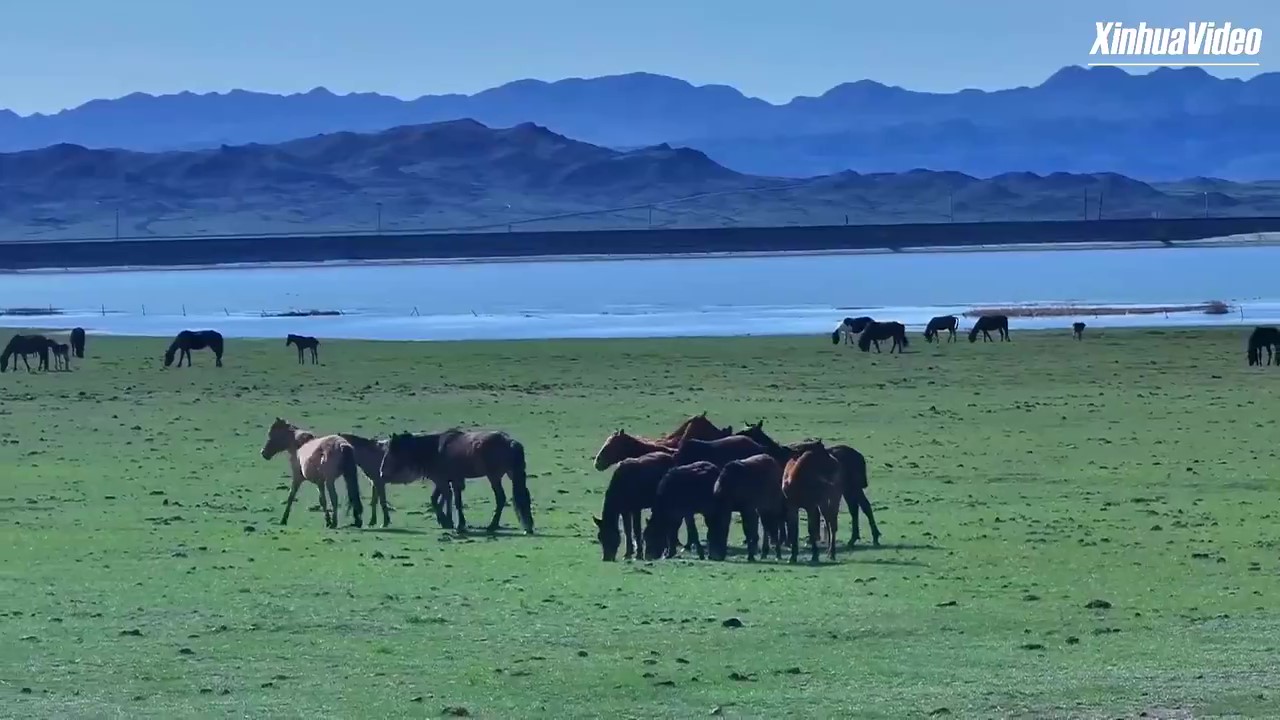
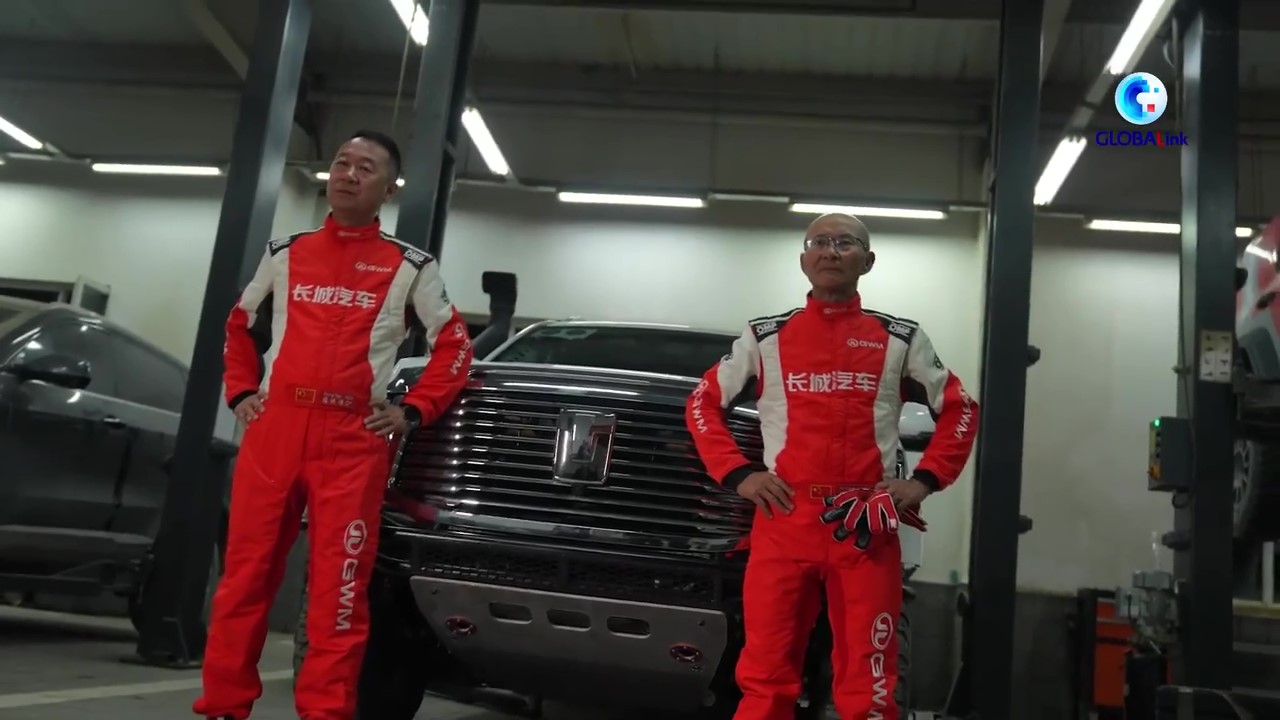

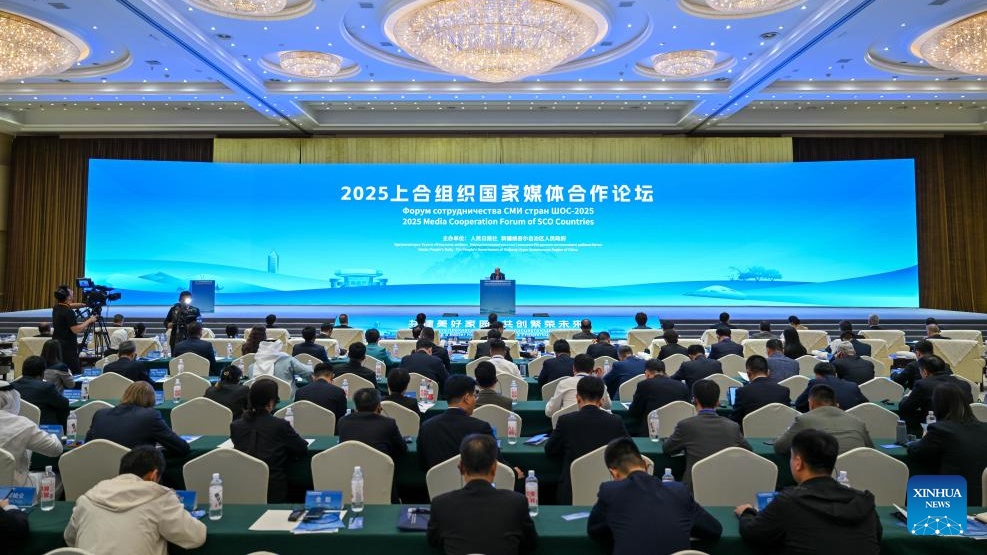
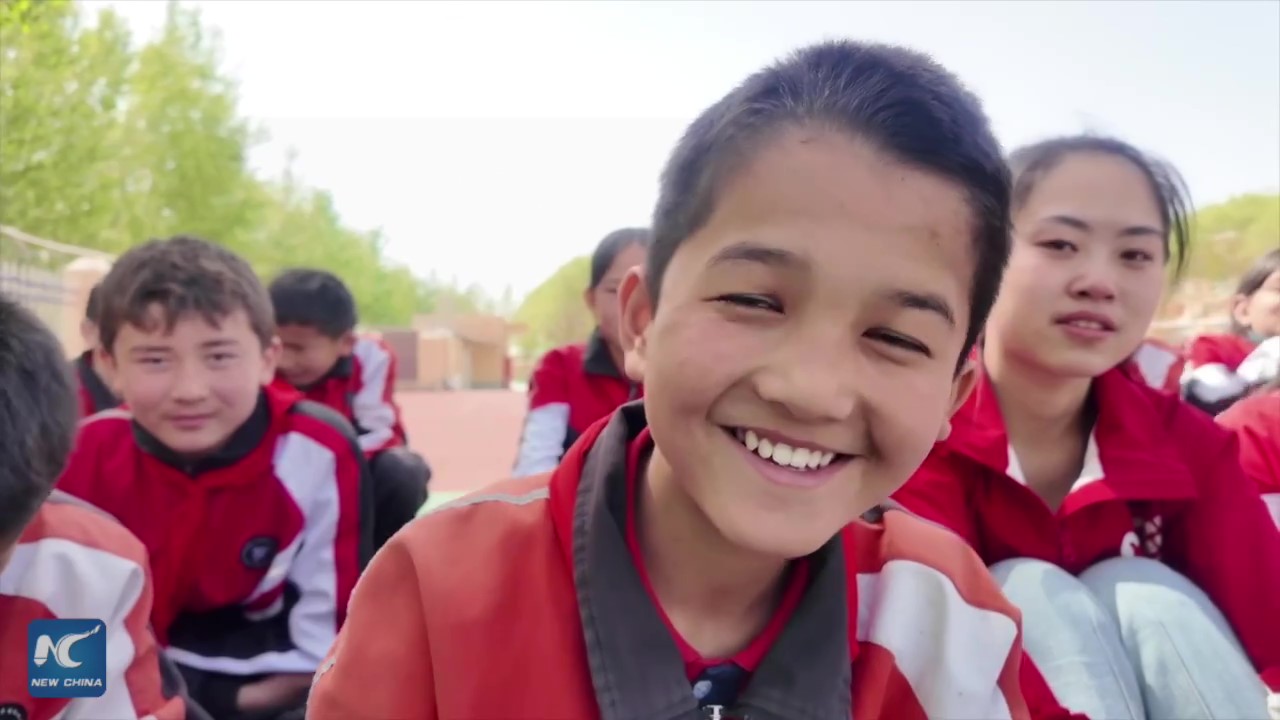
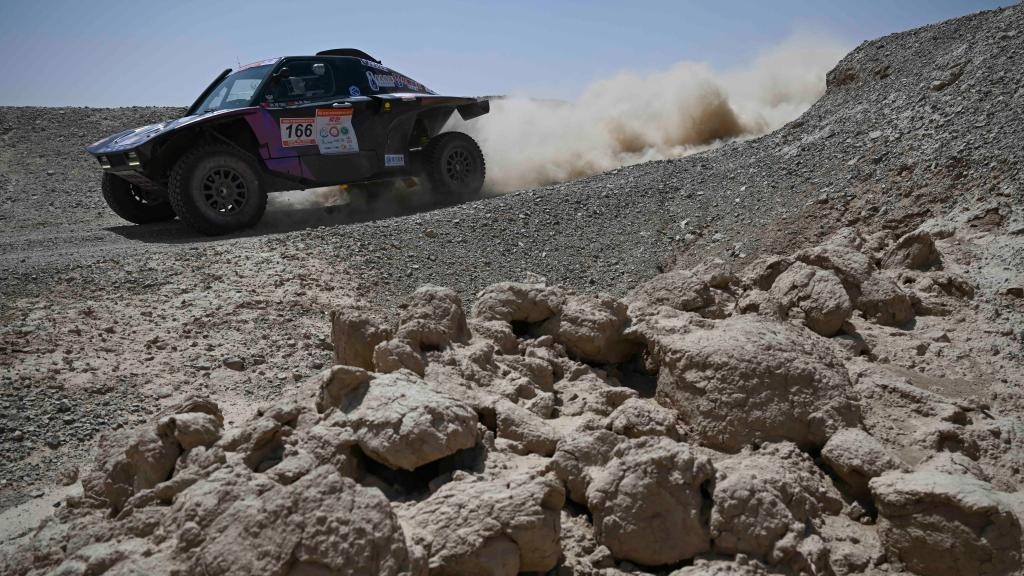

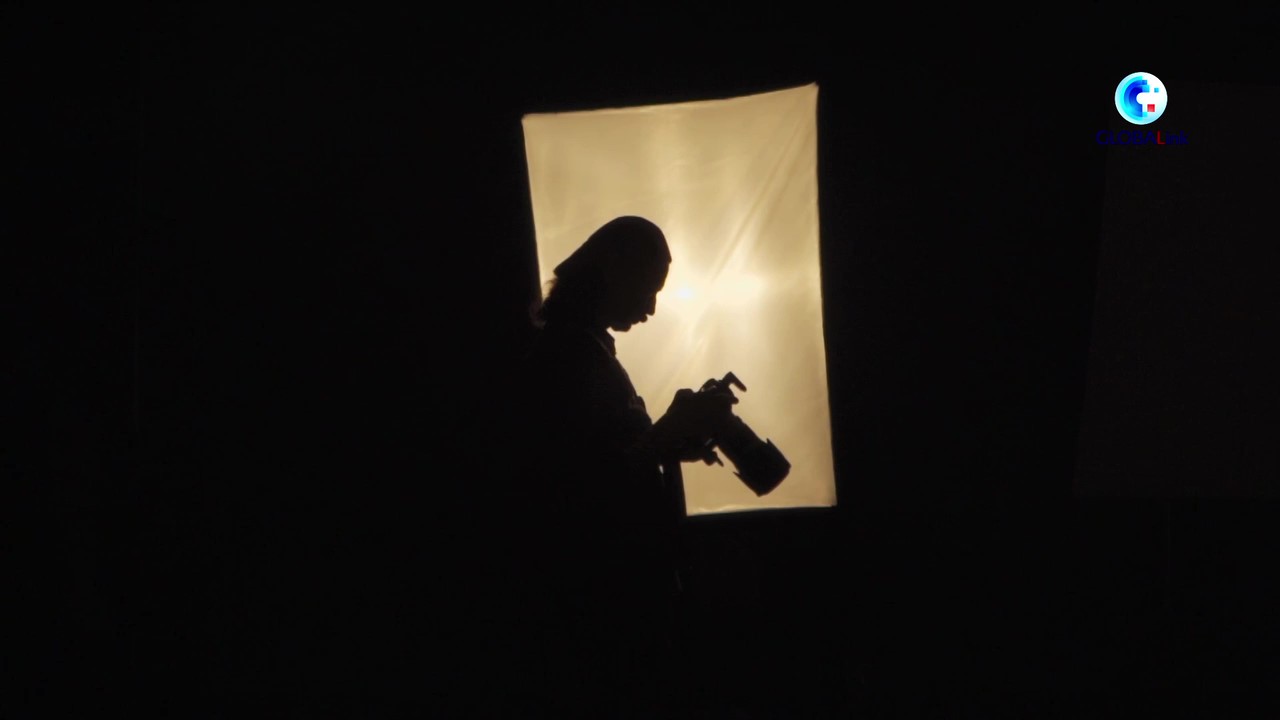
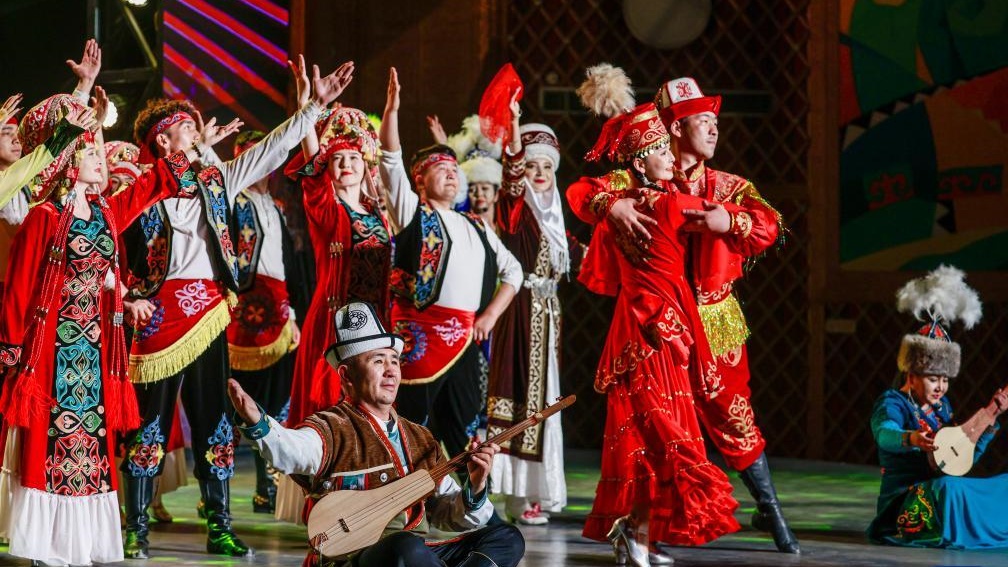
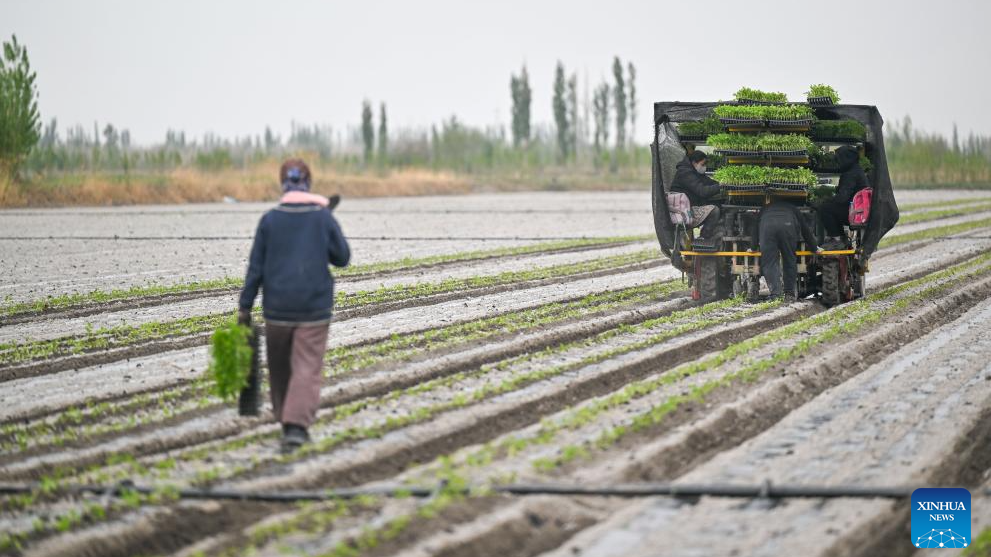


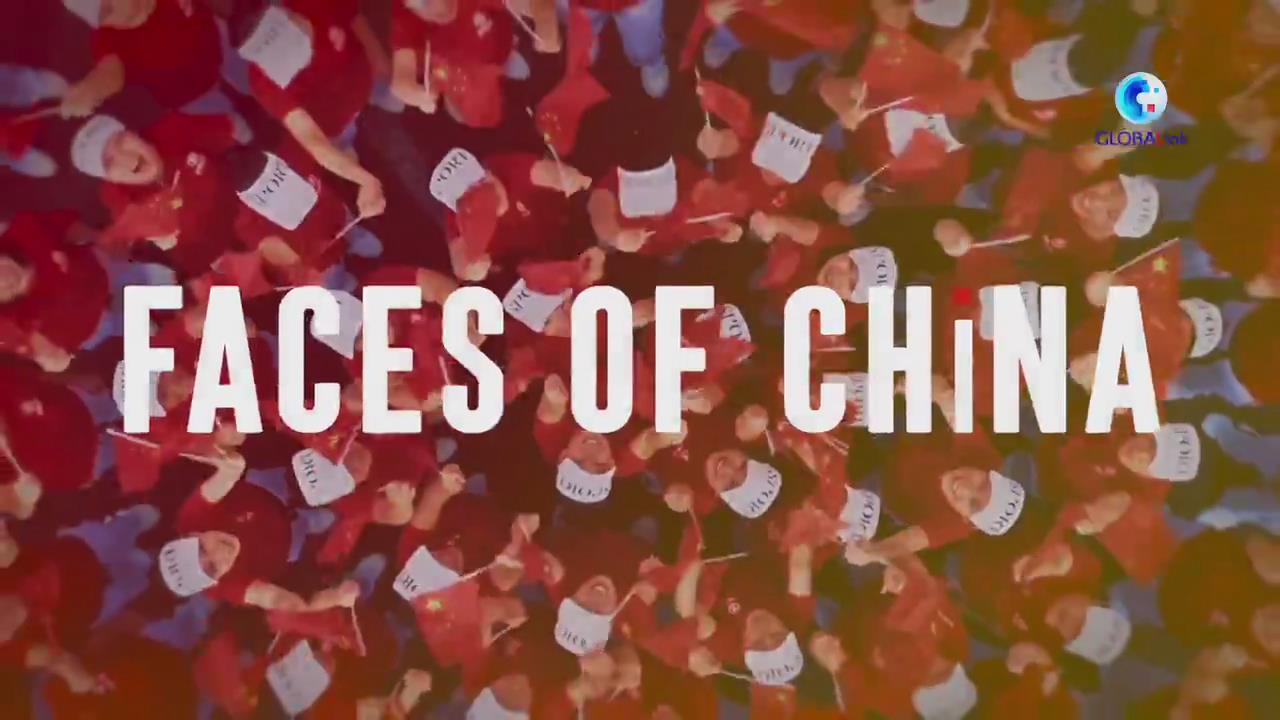
.png)
